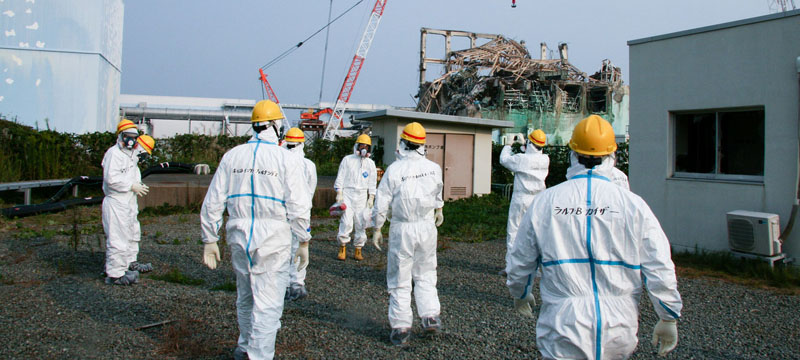 Japan
Japan
New York: The UN chief urged countries to make sure they invest the funds necessary to prevent and manage disasters, in a solemn message of remembrance on Wednesday for the 18,400 people who died or are unaccounted for, due to the earthquake and tsunami that struck Japan exactly ten years ago.
Known officially as the Great East Japan Earthquake and Tsunami, António Guterres expressed his condolences, “to those who continue to grieve the loss of loved ones.
“And I think of those who remain displaced, unable to return to their homes because of safety concerns surrounding the destroyed Fukushima Daiichi nuclear power plant”, added the Secretary-General.
He welcomed the findings of a UN report published on Tuesday, from the UN Scientific Committee on the Effects of Atomic Radiation (UNSCEAR), which concluded that no adverse health affects among residents of Fukushima had been found that could be directly attributed to radiation exposure.
Mr. Guterres noted that Japan was “leading the world when it comes to disaster prevention” saying the country has invested heavily in building back safer in the past decade.
He described the Sendai Framework for Disaster Risk Reduction, adopted six years ago, as a “global blueprint for a safer world”, and argued that to prevent and manage disasters more effectively, “countries need to plan, invest, give early warnings and provide education on what to do."
‘Never been so important’
“The whole notion of prevention and preparedness for a tsunami has never been so important,” said Mami Mizutori, UN Special Representative for Disaster Risk Reduction and head of the UN Office for Disaster Risk Reduction (UNDRR), on Wednesday.
In comments to mark the 10th anniversary, Ms. Mizutori told journalists in Geneva that the disaster had taught harsh lessons about how to manage disaster risk.
The devastating surge on the northeastern coast of the island of Honshu, led to the Fukushima nuclear disaster.
In the last century, tsunamis have claimed more than a quarter of a million lives, killing on average, around 4,600 per event, over the course of 58 recorded instances, according to UN figures.
Climate triggers
Workers monitor the Fukushima Daiichi Nuclear Power Plant from the Emergency Response Centre., by IAEA/Gill Tudor
But Ms. Mizutori warned that “disasters that are becoming much more rampant are all those related to climate emergency. And the number of climate emergency disasters have doubled during the past 20 years compared to the previous 20 years.”
UNESCO's Intergovernmental Oceanographic Commission (IOC) is “embarking on the very important developments in the tsunami warnings systems under a new campaign of the United Nations,” said Dr. Vladimir Ryabinin, Executive Secretary of the IOC-UNESCO.
Recently, the IOC carried out a tsunami-preparedness exercise with the countries bordering the northeast Atlantic, the Mediterranean and adjacent seas, to assess tsunami preparedness and coordination between communities and authorities. A similar exercise is planned for 12 March in the Caribbean.
'Tsunami ready'
“We hope very much that by the end of this decade 2030 we will have all tsunami- prone communities; tsunami-ready communities”, Dr. Ryabinin said. “They will know what is to be done, they will be equipped with the means to escape from tsunami and when (a) tsunami strikes, they will evacuate and save their lives.”
It was equally important for people to understand the role of science; to be ocean literate, climate literate and disaster risk reduction literate, the IOC spokesperson maintained.
Highlighting the importance of education in ocean science in achieving progress in this area, Dr. Ryabinin added that “every facet of sustainable development, poverty, food, energy, climate and many other sustainable development goals, really if you think deeply, depend on ocean science.”
Support Our Journalism
We cannot do without you.. your contribution supports unbiased journalism
IBNS is not driven by any ism- not wokeism, not racism, not skewed secularism, not hyper right-wing or left liberal ideals, nor by any hardline religious beliefs or hyper nationalism. We want to serve you good old objective news, as they are. We do not judge or preach. We let people decide for themselves. We only try to present factual and well-sourced news.







